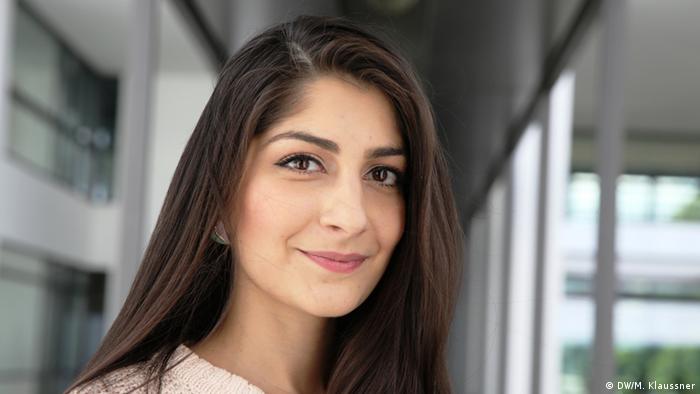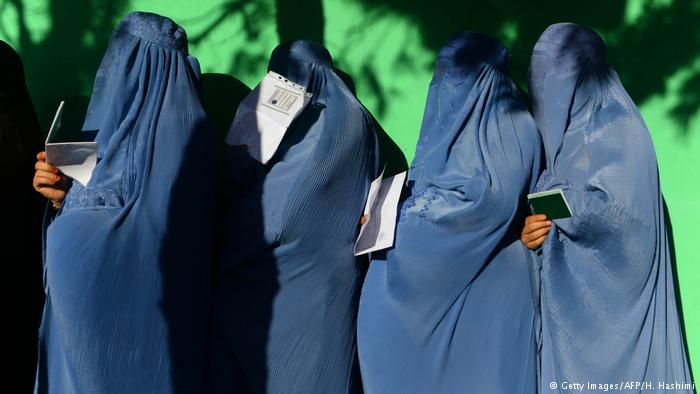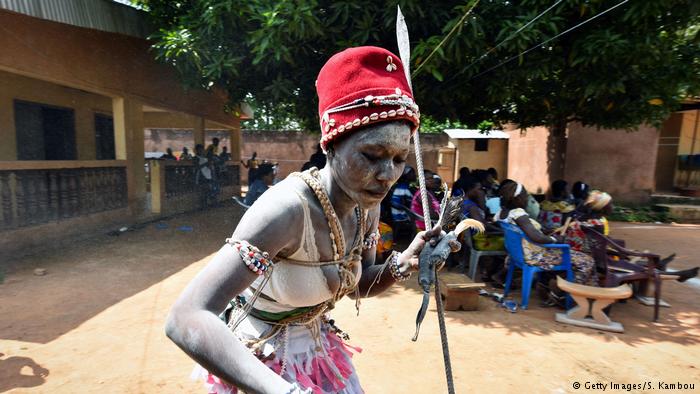‘Journalists don’t work to win awards’

Deutsche Welle journalist Waslat Hasrat Nazimi has been nominated for this year’s Rumi award for best international journalism. She is the first woman journalist to be nominated in this category of the Rumi prize, named after the 13th century poet, jurist, theologian and Sufi mystic Mawlana Jalal ad-Din Muhammad Balkhi Rumi . Here, she shares some of her thoughts and experiences as a German-Afghan journalist.
DW: How does it feel to be nominated for this award?
Waslat Hasrat Nazimi: I feel very lucky and honored to be considered for this award. There are so many talented Afghan journalists working in and outside of Afghanistan. It feels like all the hard work I have been doing in the past years has borne fruit. However, I do believe that journalists don’t work to win awards but to inform and educate the people.
Could you tell us about a special assignment for which you think you were nominated?
Beginning last year, the DW team and I worked tirelessly on reporting on the Afghan elections which took place in 2014. We were reporting live from the ground under difficult circumstances to let the world know that Afghans wanted democracy and were ready to even sacrifice their lives for this purpose. I really hope I was able to communicate this message to our audience.
You have been living in Germany for a long time. What draws you to Afghanistan? What are your personal reasons for writing about Afghanistan?
I am a German too, but Afghanistan is my home country and I hope to return there one day. I believe that, through my work, I could give something back to this country and its beautiful and strong people. Whenever I get frustrated by all the bad news and terrible incidents, I close my eyes and think of the Afghan children and their laughter and positivity despite all the suffering. This gives me the strength to keep on writing. I wish that my work could help improve the conditions of the country.
How do you feel as a female journalist in Afghanistan- you also went there to report. Was it difficult or did you also have some easy times because you were a woman?
Working as a journalist is much harder for women in the country. You have to be much more careful where you go, who you are with and how you dress. Journalism is not regarded as an appropriate profession for a woman but despite the hardships, it is much easier for a female journalist to get access to Afghan women and their lives.
What is the difference between a female reporter from Afghanistan and a female reporter like you who lives abroad? Do you think differently?
Since I am an Afghan who speaks the language and knows the customs, I don’t see myself as a foreign journalist. I do however have the privilege to get out of the country as soon as times get tough. I do not have to live with the daily shaming and difficulties Afghan female journalists have to live with. I don’t think that there are differences between their way of thinking and mine. I have a large family in Afghanistan and whatever happens in the country affects me too. I want to do my job and be happy just like them.
We keep reading about women’s rights abuses in Afghanistan, but could you tell us about the strength of Afghan women?
A few days ago I read about an Afghan mother who killed 25 Taliban fighters when she found her son was killed by them in a Western province in Afghanistan. This might surprise a few people, but to me it was just another proof that Afghan women are no victims. Throughout history there have been many strong female Afghan figures and they are celebrated until today. Afghan women are standing strong despite all what they had to go through in the past decades and they are not giving up. Of course we have a long way to go, but as long as there is one Afghan woman in this country, there is hope.
How do you think your nomination will affect reporting in Afghanistan. And do you feel that you will also influence other women journalists?
I am the only female nominated in this category. You would think there are more females working for international outlets, but that’s not the case. I have great respect for female journalists working for Afghan media and I wish that my nomination will inspire them to work for international media as well. Only Afghan female journalists are capable of giving an insight to the lives of half of the Afghan population.
Interview: Manasi Gopalakrishnan
Editor: Sanjeev Burman
You can also vote for Waslat to win the Rumi award in the best international journalist category. Click here to go to the awards voting page.






